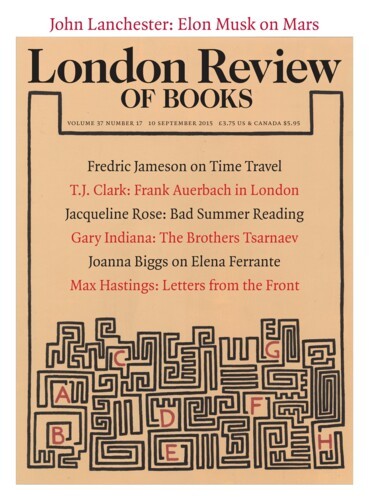In Hyperspace
Fredric Jameson, 10 September 2015
It is probably not immediately obvious what interest a new theoretical study of science fiction holds for the mainstream adepts of literary theory; and no doubt it is just as perplexing to SF scholars, for whom this particular subgenre of the subgenre, the time-travel narrative, is as exceptional among and uncharacteristic of their major texts as SF itself is with regard to official Literature. To be sure, so-called alternative or counterfactual histories have gained popularity and a certain respectability; my personal favourite is Terry Bisson’s Fire on the Mountain.





